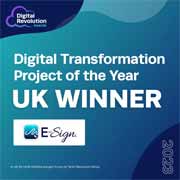The Legality of eSignatures in Singapore
Explore the legality of electronic signatures in Singapore and the laws and regulations that govern their use.

Trusted By
Are eSignatures Legally Binding in Singapore?
Documents that may be signed electronically
The following types of documents can be signed electronically in Singapore, without any specific requirements for the signature:
- Non-disclosure agreements (NDAs)
- Board meeting minutes
- Corporate resolutions
- Commercial agreements
- Negotiable instruments, such as bills of exchange, promissory notes, bills of lading, and other transferable documents
- Singapore government filings
These documents can be signed electronically, provided they do not require additional formalities or specific statutory procedures.
Electronic signature guidance
When executing deeds electronically, it is crucial to ensure that the process aligns with legal requirements. According to the Electronic Transactions Act (ETA), a signature requirement is considered fulfilled in an electronic record if a method is used that can:
- Identify the person and confirm their intention regarding the content of the document.
- The method should either:
- Be as reliable as necessary for the purpose for which the electronic record was created or communicated, or
- Be proven to accurately identify the person and confirm their intention to sign the document.
This ensures that the electronic signature meets legal standards and provides adequate security for all parties involved.
Types of e-signature permitted in Singapore
While the Electronic Transactions Act (ETA) does not specifically define an electronic signature, the Infocomm Media Development Authority (IMDA) clarifies that an e-signature represents a person’s intent or consent. It can take various forms, such as:
- Ticking a checkbox or clicking “I accept” on an online form
- Pasting a digitised image of a handwritten signature
- Signing with a stylus or finger on a touchscreen
- Selecting an option in e-signature software
Although the ETA does not provide a formal definition for e-signatures, it differentiates between three types: e-signatures, secure e-signatures, and digital signatures.
- Both e-signatures and secure e-signatures are legally admissible under the ETA.
- A secure e-signature carries additional legal presumptions, such as:
- It is linked to the signer,
- The signer intended to sign the document,
- The signature is authentic and ensures the document’s integrity.
- A digital signature is a specialised type of e-signature that adheres to more stringent security requirements for verification.
These distinctions are vital for ensuring the legal validity and security of electronically signed documents in Singapore.
Notable legality changes since 2020
None.
Publicly Accessible Links to Laws/Regulations Discussed
Disclaimer
The content provided on this website is meant for general informational use only and does not constitute legal advice. Legal regulations on this topic can evolve rapidly, so E-Sign does not ensure that the information presented here is always up-to-date or accurate. If you have particular legal concerns regarding any details on this site, it is recommended that you consult with a licensed attorney in your jurisdiction.
Last Updated 9th October 2024




























